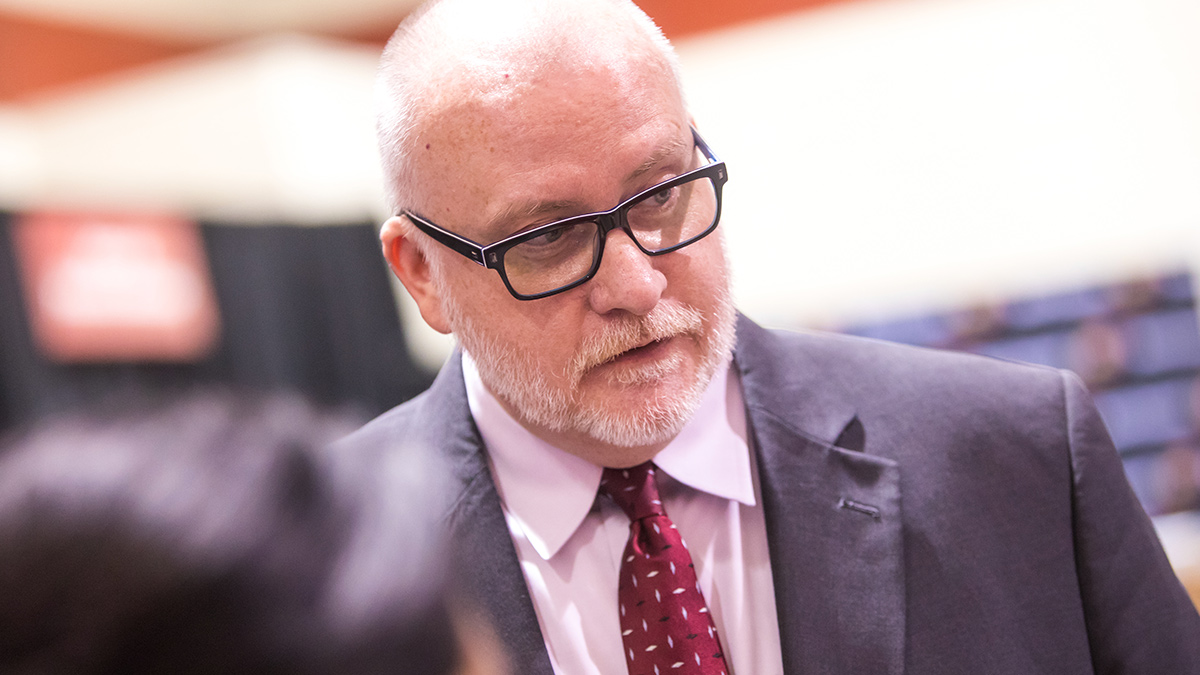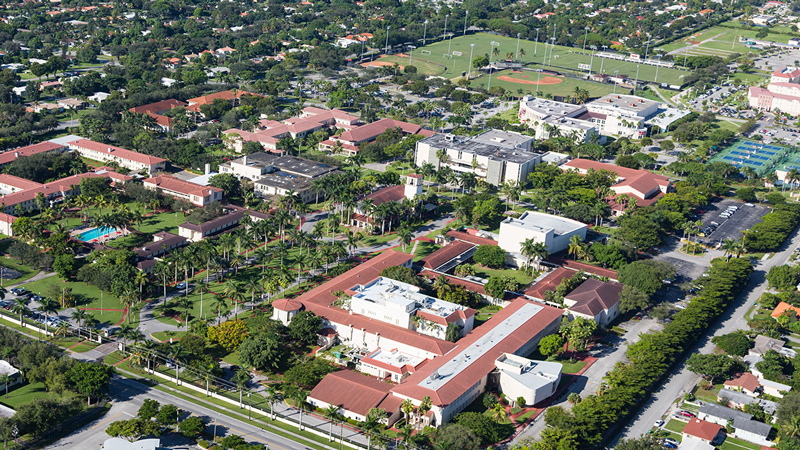This course uses an interdisciplinary approach to the teaching of language arts. Studies research-based models and methods for interrelating language arts. Project interrelating listening, speaking, reading and writing required.
Reading, MS Course Descriptions
Required Courses (30 semester hours)
-
-
Surveys the knowledge and research-based teaching strategies necessary to understand the nature of the reading act and the basic principles of reading instruction. Includes use of professional resources to investigate historical and current trends in reading instruction.
-
Assists the elementary and secondary classroom teachers with research-based reading and study skill and best practice strategies as they apply to the individual subject areas in their curriculum. Lessons, practice activities, and informal screening devices will be designed for specific content areas in the elementary grades. Field experience will be conducted in
-
Focuses on diagnosing problems in reading. Includes the administration, interpretation, and use of formal and informal tests. Prerequisites: EDU 567, or equivalent and permission of instructor. Practical field experience required.
-
Deals with the selection and preparation of research-based classroom instructional methods, materials and strategies for use in correcting reading difficulties with students in the K-12 classroom. Prerequisite: EDU 584 or equivalent, or permission of instructor. Practical field experience required.
-
Explores major research designs and methods emphasizing underlying assumptions, inquiry aims, participant selection, data collection and analysis, interpretation of findings, conclusions, and reporting.
-
Includes theoretical foundations of emergent literacy, reading curriculum for primary children and research- based techniques for teaching primary reading. Prerequisite: EDU 567, or equivalent and permission of instructor. Practical field experience required.
-
Focuses on research-based methods for implementing the duties and responsibilities of a reading resource teacher at a school site. Includes consultative skills for assisting classroom and content area teachers. The focus includes human relations and leadership skills. Prerequisite: EDU 567 or equivalent, a secondary graduate reading course to be determined by the instructor. Practical field experience required.
-
Examines the administration and interpretation of assessments that diagnose reading disabilities which impact the reading process. Development and implementation of a research-based instructional remedial program in the K-12 classroom setting. Prerequisite: EDU 590, Practical field experience required.
-
Provides a supervised capstone practicum course in an instructional reading/literacy situation. Focus is on the reading teacher using research-based techniques for working with students, administrators, other teachers, and the community in a supervised setting. Prerequisite: Completion of all required MS coursework. Prerequisite: Admission to the MS or EdS program in Reading.
-
Explores the objectives, techniques, and procedures for research-based programs of developmental reading in primary, elementary, middle, and secondary schools. Serves as the foundation of studies to integrate reading within total academic programs. Prerequisites: EDU 567 or equivalent and permission of advisor.
Elective Courses
-
Focuses on improving the teaching of teaching vocabulary and comprehension. Research-based vocabulary and comprehension strategies are taught through modeling and differentiated lesson planning. Focus on the impact of vocabulary knowledge and reading comprehension. Field experience required. Prerequisites: EDU 567, or equivalent.
-
This advanced course supports teachers by providing theories, models and techniques necessary to improve literacy/reading and thinking skills in the P-12 classroom. Teachers will learn strategies to help organize students' thinking, with an emphasis on reading/literacy skills.
-
Studies the major components involved in the teaching of reading at the secondary, college and adult levels. Includes research-based diagnostic-prescriptive procedures and the organization and implementation of corrective instruction in vocabulary, word attack, comprehension, and study strategies.
-
Provides an introduction to adult literacy as it relates to the development and implementation of integrated curricular, linguistic and cognitive theories, and sociocultural and socio-political issues pertaining to literacy that are the foundation for current directions in literacy practices and instruction.
-
Focuses on research-based remedial techniques for students who evidence reading problems. Prerequisites: EDU 584 or equivalent, or permission of advisor. Practical field experience required.
-
Prepares the Reading teacher to use a variety of technologies in the teaching of reading, and to augment instruction in a classroom.
Course Required for State Certification
-
Addresses current trends and issues in children's literature for the elementary student. Focuses on literature genres and how to embed literature into the curriculum to support content areas and students with cultural and linguistic differences. Provides ways to develop positive dispositions towards reading and varied literature. Examines the Florida Sunshine State Standards, Subject Matter Content, an ESOL strategies related to Language Arts and Reading. Field Experiences required.
*You must have completed either an undergraduate or graduate course in children's or adolescent literature and a course in evaluation and measurement in education. If you have not already done so, you must take EDU 554 to fulfill the requirements.













